Vitamin K vs Potassium, though often grouped together as essential micronutrients, are distinct in their properties and functions within the body. Both are crucial for maintaining optimal health, but they play very different roles. This article aims to demystify these nutrients, highlighting their unique characteristics and the vital functions they perform. By understanding the individual contributions of Vitamin K and Potassium, we can appreciate their importance in a well-rounded diet and a healthy lifestyle.
1. Introduction To Vitamin K vs Potassium
Vitamin K and potassium are essential nutrients crucial for our health, yet they play different roles in our body. Understanding their unique functions and sources is key to maintaining good health.
1. 1 Vitamin K
Vitamin K encompasses a group of fat-soluble vitamins that are vital for producing proteins needed for blood clotting and bone health. There are two primary types of Vitamin K: K1 and K2.
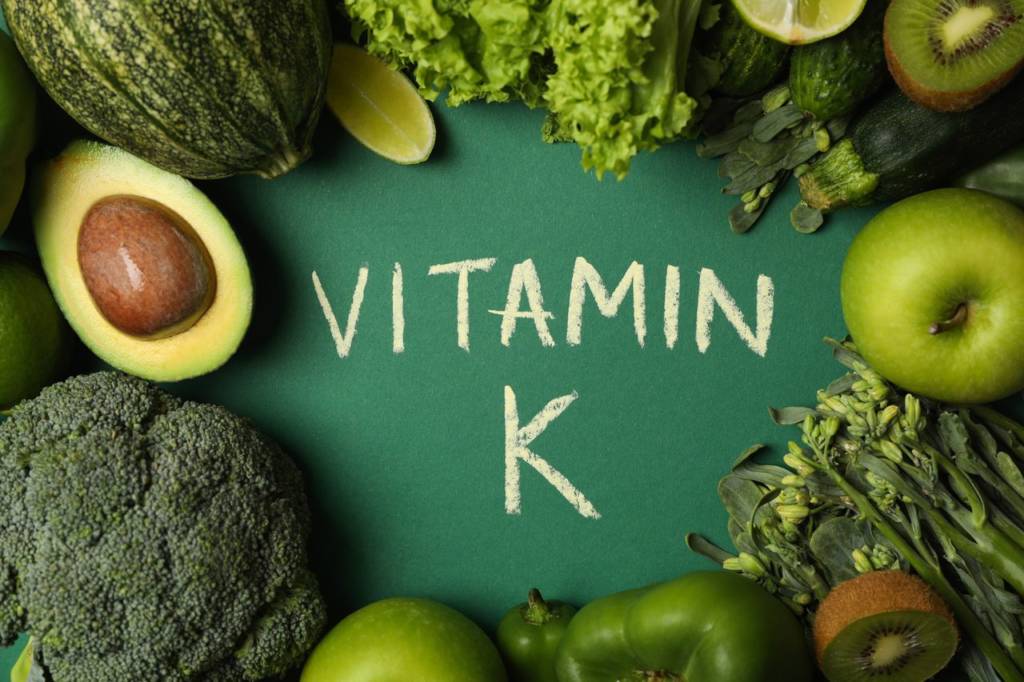
Vitamin K1, or phylloquinone, is predominantly found in green leafy vegetables and represents the most common form of Vitamin K in our diets. This vitamin is integral for effective blood clotting.
On the other hand, Vitamin K2 consists of menaquinones, typically sourced from animal products and fermented foods. An interesting fact is that small quantities of Vitamin K2 are also produced by bacteria in the human gut, contributing to its levels in our body.
1.2 Potassium
Contrary to Vitamin K, potassium is not a vitamin but a mineral and an electrolyte. It is essential for almost every cell and tissue in our body to function effectively.
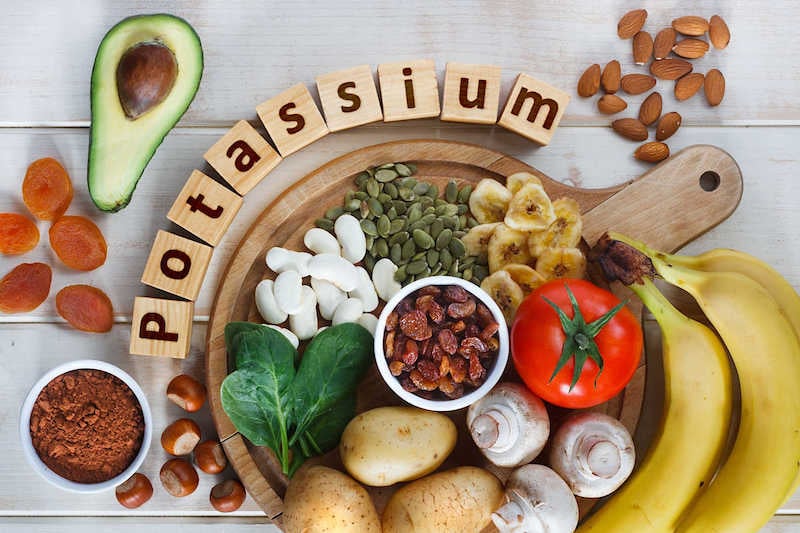
Potassium plays a critical role in various bodily functions, including maintaining water balance, regulating blood pH, controlling blood pressure, enabling muscle movement, and facilitating neuron communication. Additionally, it is crucial for maintaining a regular heartbeat.
2. Comparing Vitamin K vs Potassium
It’s a common misconception to confuse Vitamin K with potassium, mainly due to the periodic table using ‘K’ to represent potassium. This similarity in symbols often leads to confusion, but it’s important to understand that they are distinct substances with different roles in the body.
The primary distinction is that potassium is a mineral, whereas Vitamin K is a vitamin. Both are available through dietary sources and supplements, and interestingly, Vitamin K is also produced in the human gut.
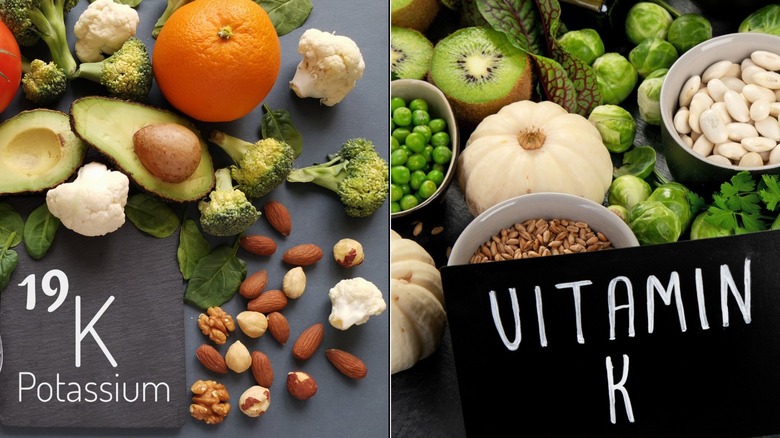
Vitamin K plays a critical role in blood clotting and bone health. It’s essential for synthesizing certain proteins that facilitate these processes. On the other hand, potassium functions as an electrolyte, a crucial component for regulating bodily fluids, ensuring proper muscle function, and maintaining nerve health.
Both Vitamin K and potassium are integral to a balanced diet. Their unique functions contribute significantly to overall health and well-being.
3. The Benefits of Vitamin K vs Potassium
Incorporating foods high in Vitamin K and potassium into your diet can significantly enhance your overall health. Each of these nutrients offers unique benefits that contribute to well-being.
3.1 Benefits of Vitamin K
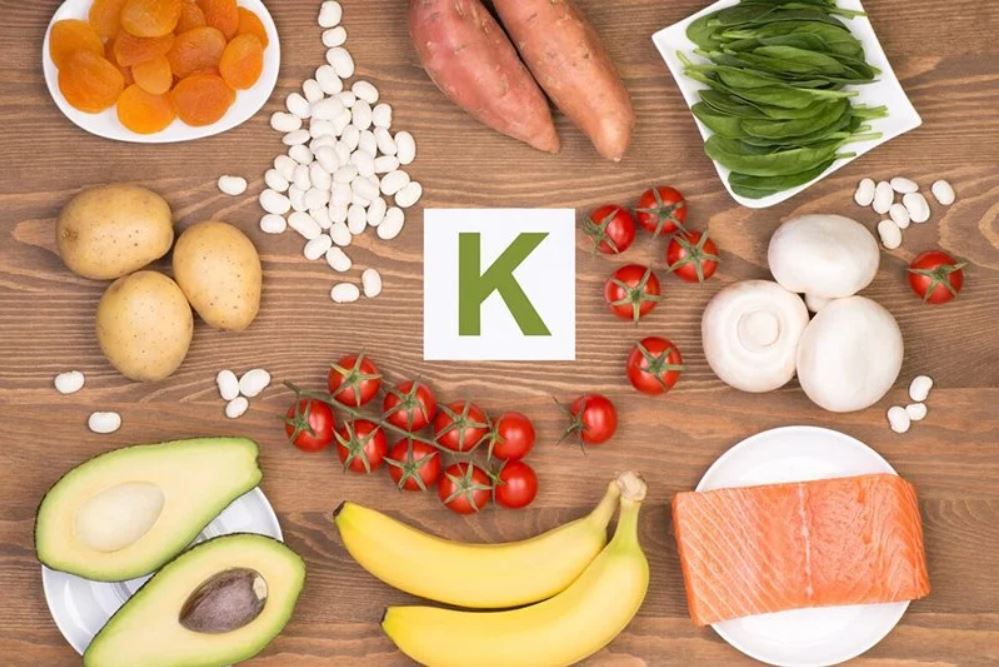
- Bone Health: Vitamin K is essential for bone growth and metabolism. It plays a crucial role in maintaining bone strength and reducing the risk of fractures. A deficiency in Vitamin K is often linked to bone-related issues, including osteoporosis.
- Cardiovascular Health: Vitamin K helps in preventing the buildup of minerals in the arteries (mineralization), facilitating smooth blood flow and lowering blood pressure. This function is critical for a healthy heart as it ensures efficient blood circulation throughout the body.
- Potential in Preventing Chronic Diseases: Emerging research suggests that Vitamin K may have a role in preventing age-related conditions like diabetes and certain types of cancer, although more in-depth studies are required to confirm these findings.
3.2 Benefits of Potassium
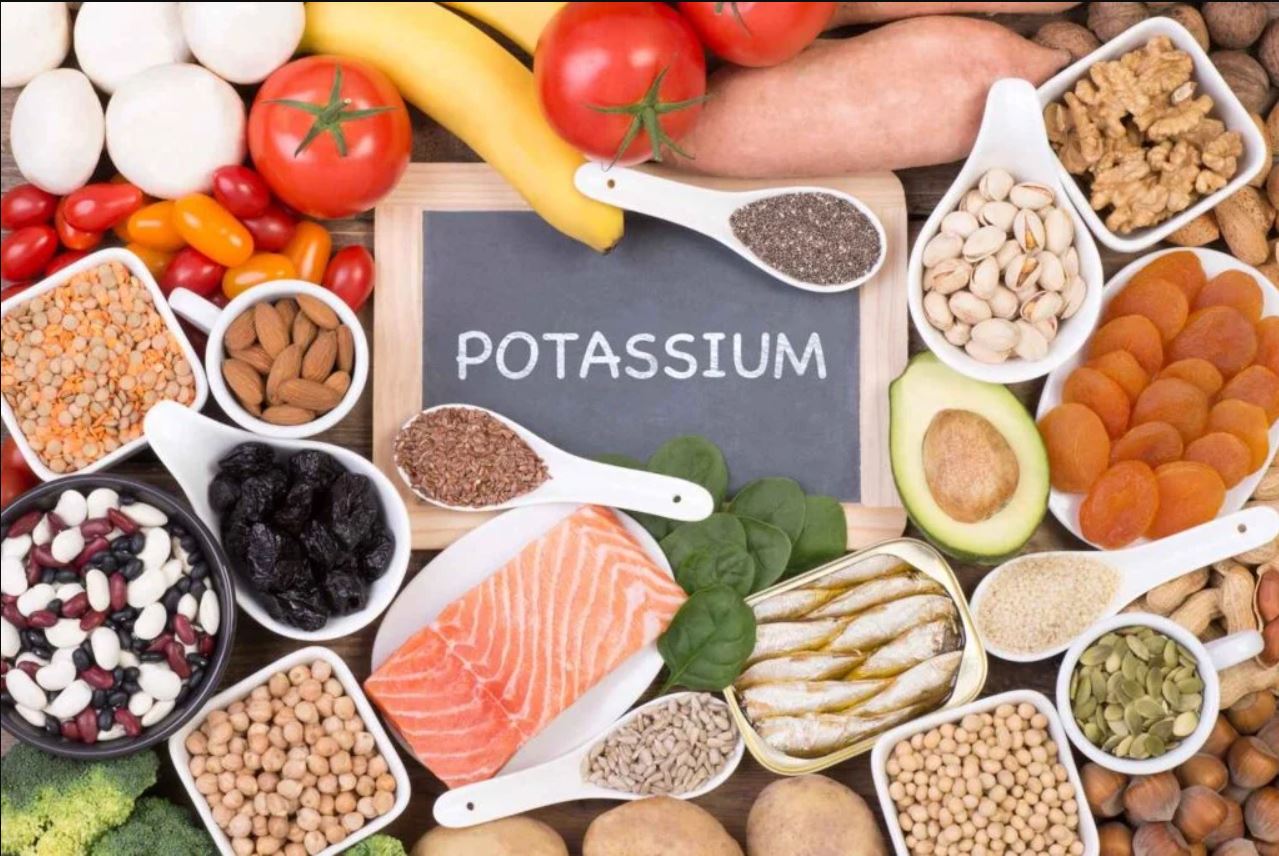
- Bone Health: Potassium may also be important for bone health. Research, especially in postmenopausal women, indicates that potassium can influence bone density positively, potentially reducing osteoporosis risk.
- Blood Pressure Regulation: One of the key roles of potassium is in regulating blood pressure. Its ability to balance electrolytes in the body significantly impacts heart health, contributing to a lower risk of hypertension and related cardiovascular diseases.
4. Foods Rich in Vitamin K and Potassium
To ensure adequate intake of Vitamin K and potassium, focusing on food sources is highly effective. Here are some of the best foods that are rich in these nutrients:
4.1 Sources of Vitamin K
- Fruits: Certain fruits, like blueberries and grapes, contain moderate amounts of Vitamin K.
- Leafy Green Vegetables: This category is a powerhouse for Vitamin K. Think spinach, kale, and broccoli, which are not only rich in Vitamin K but also offer a range of other health benefits.
- Fermented Soybeans: Known as natto in Japanese cuisine, these are particularly high in Vitamin K2.
- Nuts: Snacking on nuts like cashews and pine nuts can provide a good amount of Vitamin K.
- Cheese: Hard cheeses are a delicious way to get your Vitamin K intake. They’re particularly rich in Vitamin K2.
- Roasted Chicken: A source of Vitamin K2, roasted chicken also provides protein and other essential nutrients.
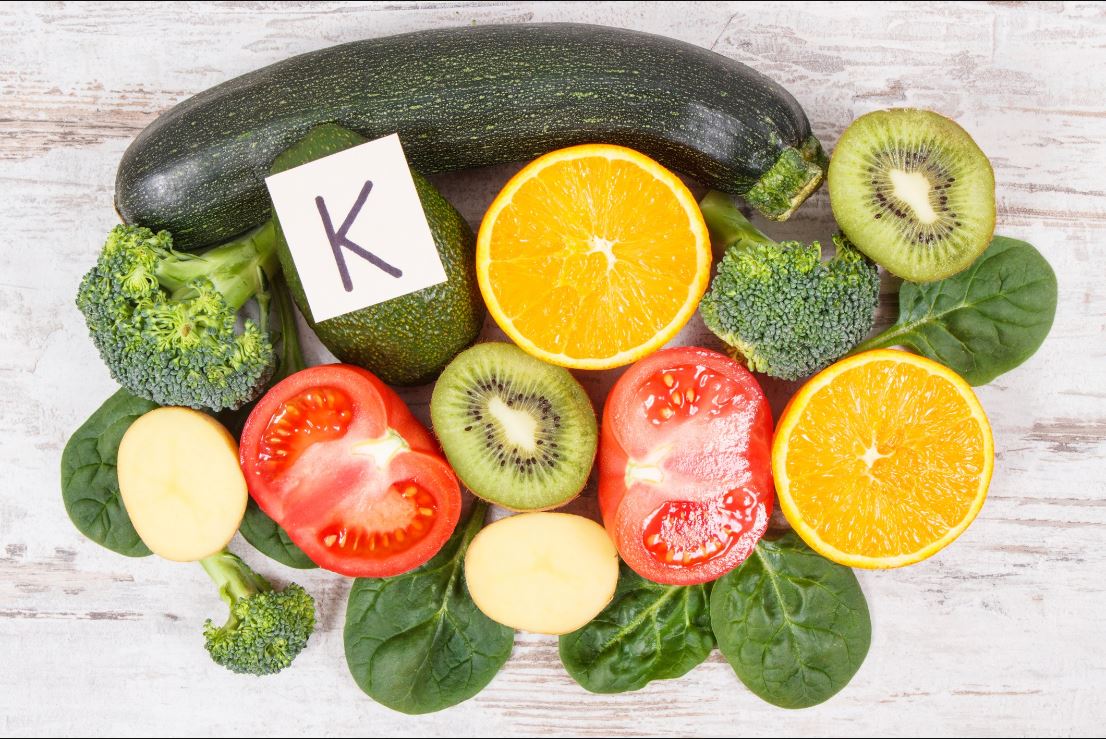
4.2 Sources of Potassium
- Fruits: Bananas, oranges, and cantaloupes are some of the fruits high in potassium.
- Vegetables: Potatoes (especially the skin), tomatoes, and sweet potatoes are excellent sources of potassium.
- Legumes: Beans, such as kidney beans and lima beans, are not only rich in potassium but also provide fiber and protein.
- Dairy Products: Milk, yogurt, and cheese can boost your potassium levels along with providing calcium.
- Seafood: Fish like salmon and tuna are high in potassium and offer heart-healthy omega-3 fatty acids.
- Lean Meat: Chicken and pork are good sources of potassium and are also lean protein options.
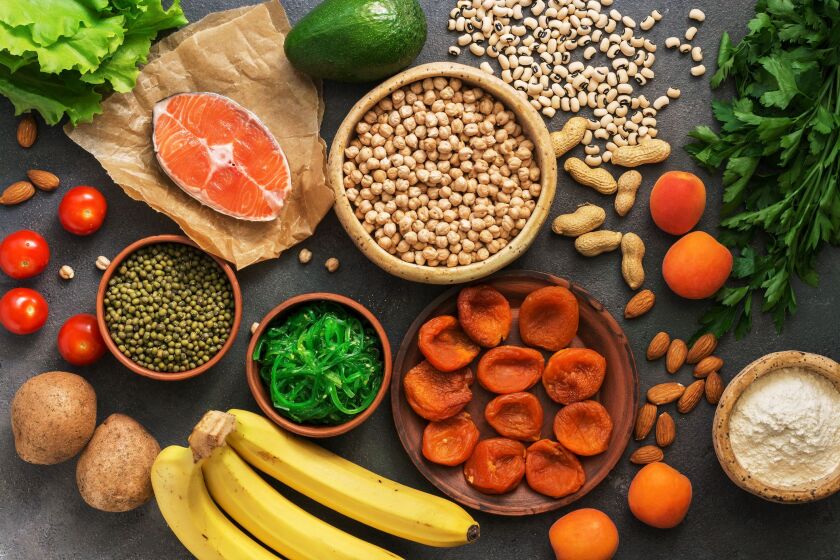
5. What You Need to Know About Vitamin K vs Potassium
Vitamin K deficiency, while uncommon, can lead to issues like excessive bruising and increased bleeding. It’s important to ensure adequate intake through diet, and in certain cases, supplementation might be necessary. Consulting with a healthcare provider is key to determine if vitamin K supplements are appropriate for your needs.
It’s crucial to balance potassium levels as too much can negatively impact health. Potassium supplements should only be taken under medical guidance. For infants under 12 months, breast milk, formula, and solid foods typically provide sufficient potassium for their growth and development.
6. Conclusion
In conclusion, understanding the distinct roles and benefits of Vitamin K vs Potassium is key to a healthier lifestyle. We hope this blog has illuminated the importance of these micronutrients and inspired you to consider them in your daily diet. We’d love to hear your experiences and any personal insights you have regarding Vitamin K and Potassium. Please share your stories and feedback in the comments section. For more informative and engaging content on health and wellness, don’t forget to explore our other blogs at Biosculpture. Your journey to better health is just a click away!
>>See other comparison articles:
1. Manganese vs Magnesium: A Comprehensive Comparison
2. Olive Oil Vs Vegetable Oil: Which Is Better for Your Health?
3. Brown Rice Vs White Rice: Which Type of Rice Is Better?
4. Basmati Vs Jasmine Rice: Exploring Unique Flavors & Recipes


